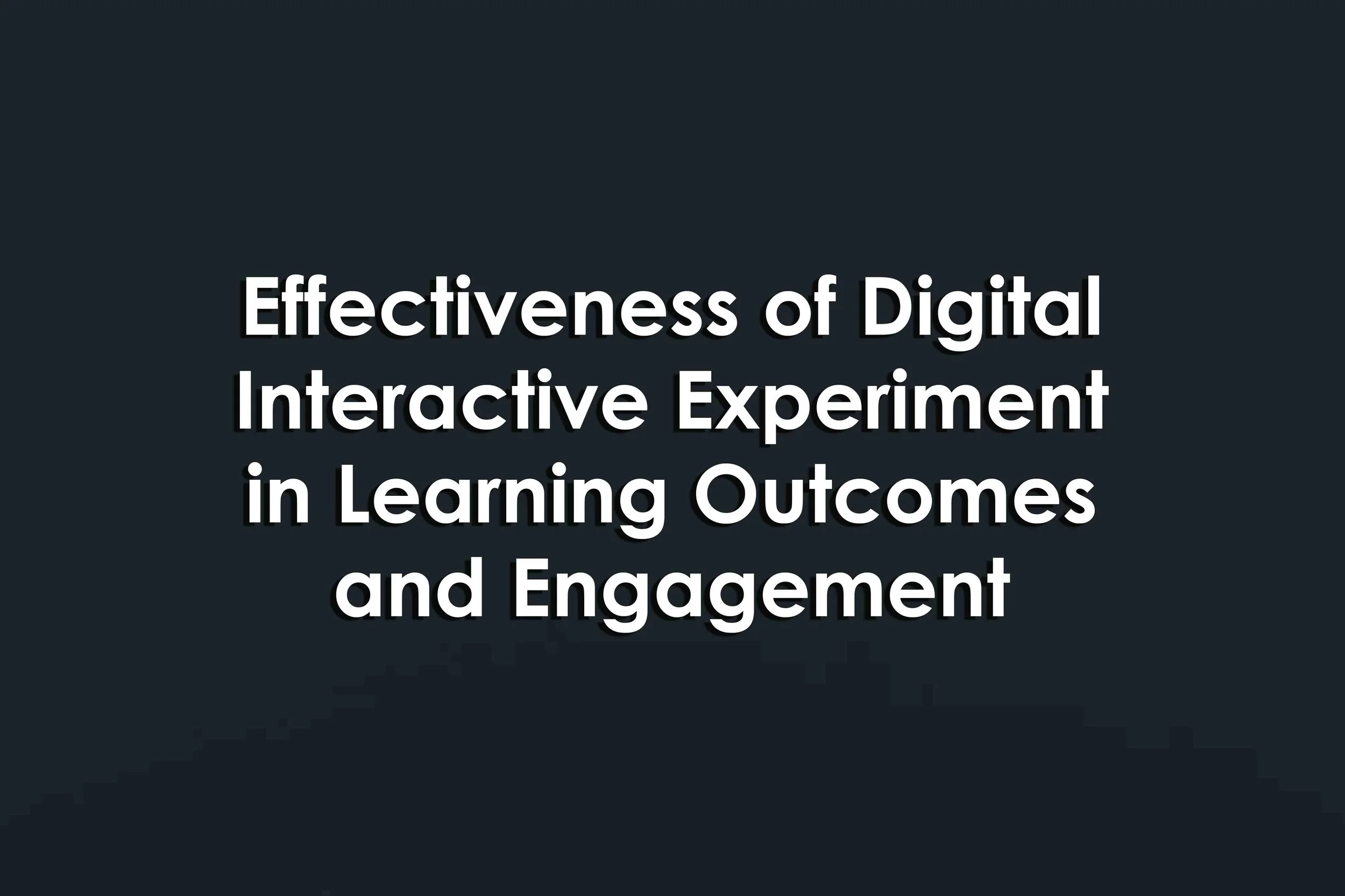Effectiveness of Digital Interactive Experiment in Learning Outcomes and Engagement
Effectiveness of Digital Interactive Experiment in Learning Outcomes and Engagement
Effectiveness of Digital Interactive Experiment in Learning Outcomes and Engagement
By Matin Salemirad
Abstract
“Despite some ongoing debates over the positive or negative impact of digital games, educational games are powerful tools to increase engagement and improve learning outcomes. Scientific concepts about the weather are complicated for younger learners and deep learning often requires long-term cultivation. This thesis presents a novel interactive educational simulation called the Science of Meteorology with Interactive Learning Experience (SMILE). In it, students interact with a touchscreen monitor to change weather conditions and learn about clouds and weather science. The relationship between engagement and learning outcomes and the effectiveness of the experience is evaluated using a formal user study. Online data collection was completed after IRB approval during the summer of 2020 with 23 students between the ages of 8 and 12. Student knowledge of clouds and weather science was tested via 12 related questions before playing with SMILE. Furthermore, the impacts of the designed simulation on engagement level were evaluated by the Game Engagement Questionnaire (GEQ), including 19 questions developed by Brockmyer et al. (2009). This study showed a significant improvement in student knowledge where the average of test scores increased 57% for the post-test. The findings show that GEQ needs some modification to measure engagement in different game genres and for different age range”
Reference
Salemirad, M. (2021, May). Effectiveness of digital interactive experiment in learning outcomes and engagement. Retrieved October 27, 2021, from https://stars.library.ucf.edu/etd2020/555/
Tags
Digital games, educational games, engagement and learning, news

